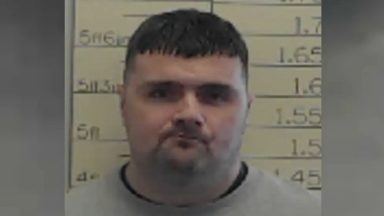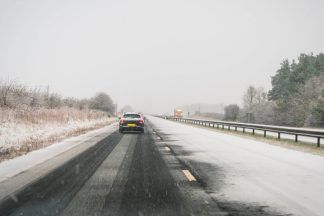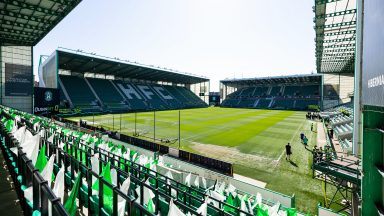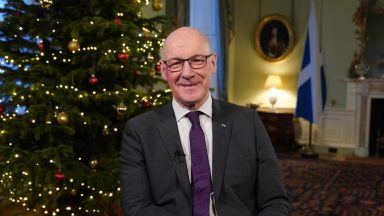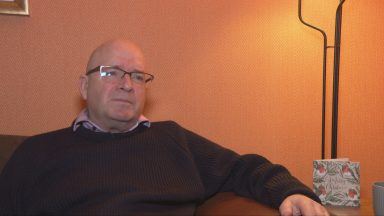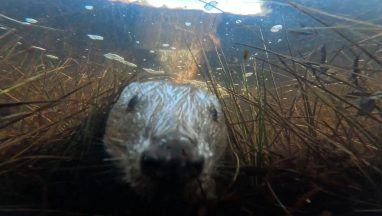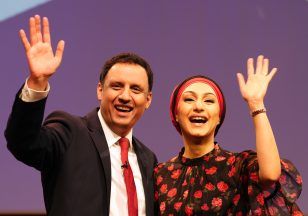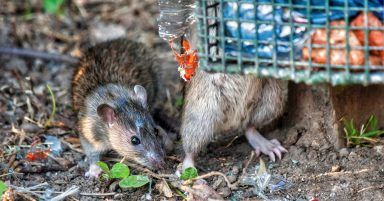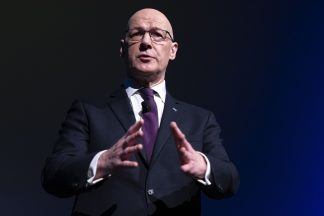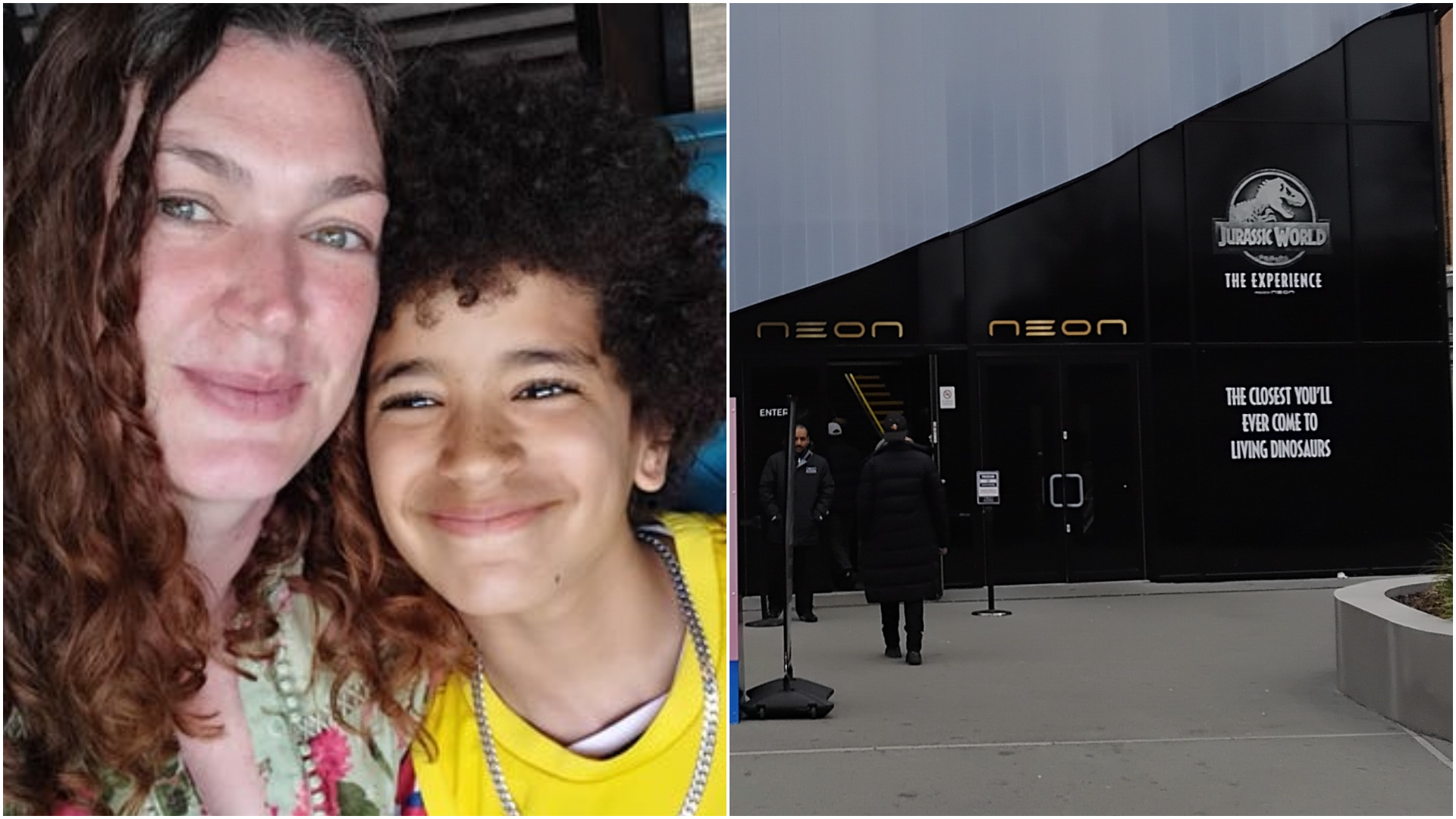Scotland’s finance secretary has announced a new tax band for higher earners as she delivers the budget for the year ahead.
Shona Robison said there would be a 45% “advanced” rate introduced on earnings between £75,000 and £125,140.
The top rate for those earning over £125,140 will increase by 1p to 48p in the pound.
These two decisions should raise around £82m, according to the Scottish Government.
It means Scotland will have six tax bands while England has three.
What does the budget mean for you?
-
 Anyone earning more than £75,000 will pay more in tax
Anyone earning more than £75,000 will pay more in tax -
 The 42% income tax threshold for earnings above £43,663 won’t rise with inflation
The 42% income tax threshold for earnings above £43,663 won’t rise with inflation -
 This means that more middle earners will pay the higher rate
This means that more middle earners will pay the higher rate -
 People earning below £43,000 should not pay anymore in tax
People earning below £43,000 should not pay anymore in tax -
 Council tax should remain frozen across Scotland next year
Council tax should remain frozen across Scotland next year -
 All Scottish benefits will rise with inflation
All Scottish benefits will rise with inflation -
 Scottish Child Payments will rise to £26.70 from April next year
Scottish Child Payments will rise to £26.70 from April next year -
 School meal debt for children will be wiped as ministers provide councils with a £1.5m fund
School meal debt for children will be wiped as ministers provide councils with a £1.5m fund -
 Business rates for premises valued at less than £51,000 will be frozen while island hospitality businesses will be given 100% relief
Business rates for premises valued at less than £51,000 will be frozen while island hospitality businesses will be given 100% relief
The deputy first minister said tax changes mean those in professions such as teaching and policing shouldn’t see a rise in tax.
In other areas of tax, the three lowest rates will see no increase in their rates.
The deputy FM said the starter and basic rate bands will increase by the level of inflation.
But the threshold for those paying the 42% rate of tax will be kept at £43,663 – meaning more middle earners will be dragged into the “higher” tax band.
The threshold for paying the top tax rate of 48% for earnings over £125,140 will also be frozen.

Robison said the freezes will raise an estimated £307m in income tax next year.
In total the tax changes will bring in another £1.5bn to Scotland’s finances next year, Robison said.
The move to tax higher earners more – which was previously reported – has been criticised by the Prime Minister as “disappointing”.
Scotland is already the highest taxed part of the UK, with those earning more than £50,000 paying around £1,500 more a year than those in other parts of Britain before Tuesday budget.
The deputy FM said it was fair that those with the broadest shoulders pay more as the Scottish Government tries to avoid cutting public services.
Analysis by the Fraser of Allander Institute ahead of the budget said Robison faced a £1.5bn financial black hole.
The think tank said the budget shortfall was due to high inflation, public sector wage payouts as well as a council tax freeze and NHS investment.
The Scottish Conservatives said the budget will be damaging to both taxpayers and businesses.
MSP Liz Smith said: ” Under the SNP, Scotland was already the highest taxed part of the UK – and the income tax rises announced by Shona Robison have only widened that gap and increased the burden on hard-working Scots.
“They mean that 100,000 more Scots are now paying the higher rate of tax.
“This will have a devastating effect on our ability to recruit and retain skilled workers, including the doctors and dentists Scotland’s under-resourced NHS desperately needs.
“The UK Government decided to give businesses 75% rates relief. Shamefully, the Scottish Government has once again refused to provide similar support to the vast majority of Scottish firms.
“This betrayal again exposes Humza Yousaf’s ‘reset’ with business as a sham, because it increases Scottish firms’ competitive disadvantage with the rest of the UK.
“There is a complete abdication of responsibility by Shona Robison for her party’s running of the Scottish economy for the last 16 years. But the usual SNP excuse – it’s all Westminster’s fault – just won’t wash.”
Council tax freeze will be ‘fully funded’
The Scottish Government will fully fund its proposed council tax freeze, providing local government with the equivalent of a 5% rise, the finance secretary said.
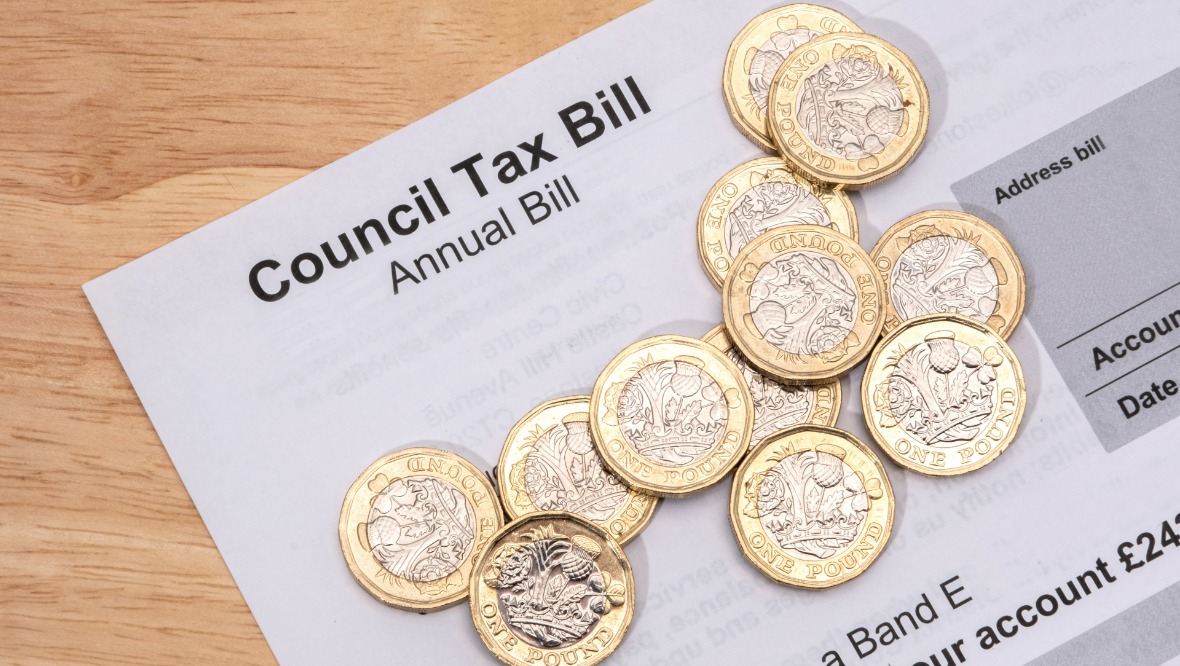 iStock
iStockAddressing MSPs, Robison said the Office for Budget Responsibility (OBR) projection for inflation next year was 3%, but she wanted to “go further than that”.
“That’s why I will fund an above-inflation 5% council tax freeze – delivering over £140 million of additional investment for local services,” she said.
“Combined with the other support being provided to local government, this will increase their overall funding by 6% since the last budget, taking local government funding to a new record high of over £14 billion.”
Funding for the NHS
Funding for NHS boards will rise by £550 million – or 4.3% – the deputy first minister told MSPs.
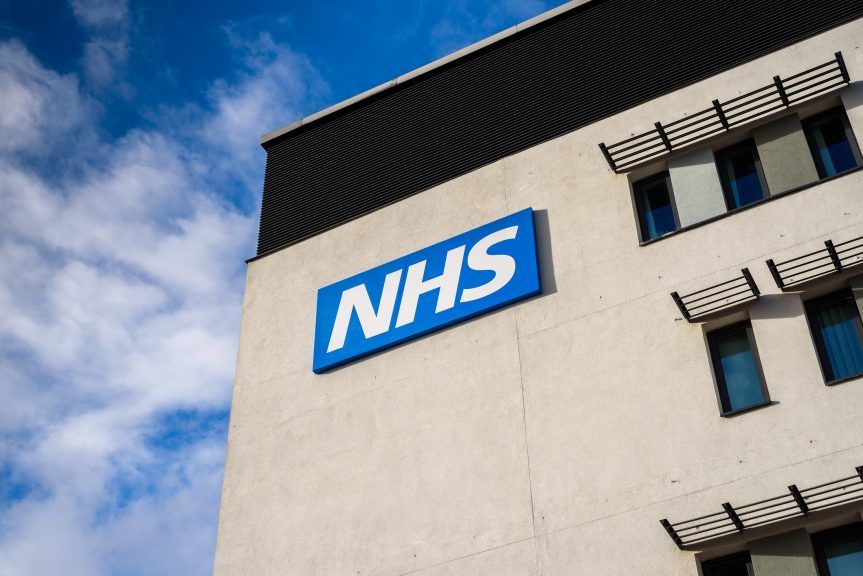 iStock
iStockShona Robison said the uplift was “above real terms” and would amount to £13.2 billion.
“This investment will help the NHS continue to evolve its delivery of services and work to improve waiting times,” she said.
“New services and innovations will need a step-change in our reform programme – and that’s why we will take forward a national conversation to help shape the NHS for the future.
“In stark contrast to others who, in their words, are keeping ‘the door wide open’ for the private sector in our NHS, we remain absolutely committed to keeping our NHS publicly-owned, publicly operated and free at the point of need.”
Business rates
Business rates for premises valued at less than £51,000 will be frozen in Scotland while hospitality businesses in Scotland’s islands will be given 100% relief.
 iStock
iStockSpeaking in Holyrood, the Deputy First Minister said ratepayers across the country would save £37m compared to if rates rose by the level of inflation.
Those in more expensive properties, who will see their rates rise by inflation, will still pay “the lowest rates for all but the largest properties for the sixth year in a row”, Shona Robison said.
She added: “In recognition of the unique challenges faced by the hospitality sector and our island communities, we will – in this budget – introduce 100% relief for hospitality properties in our islands, capped at £110,000 per business.”
The small business bonus scheme will also continue while the Government will assess how valuations for business rates are carried out, Robison said.
School meal debt and Scottish Child Payment
Councils will be provided with £1.5m to wipe out school meal debt incurred by pupils across Scotland.
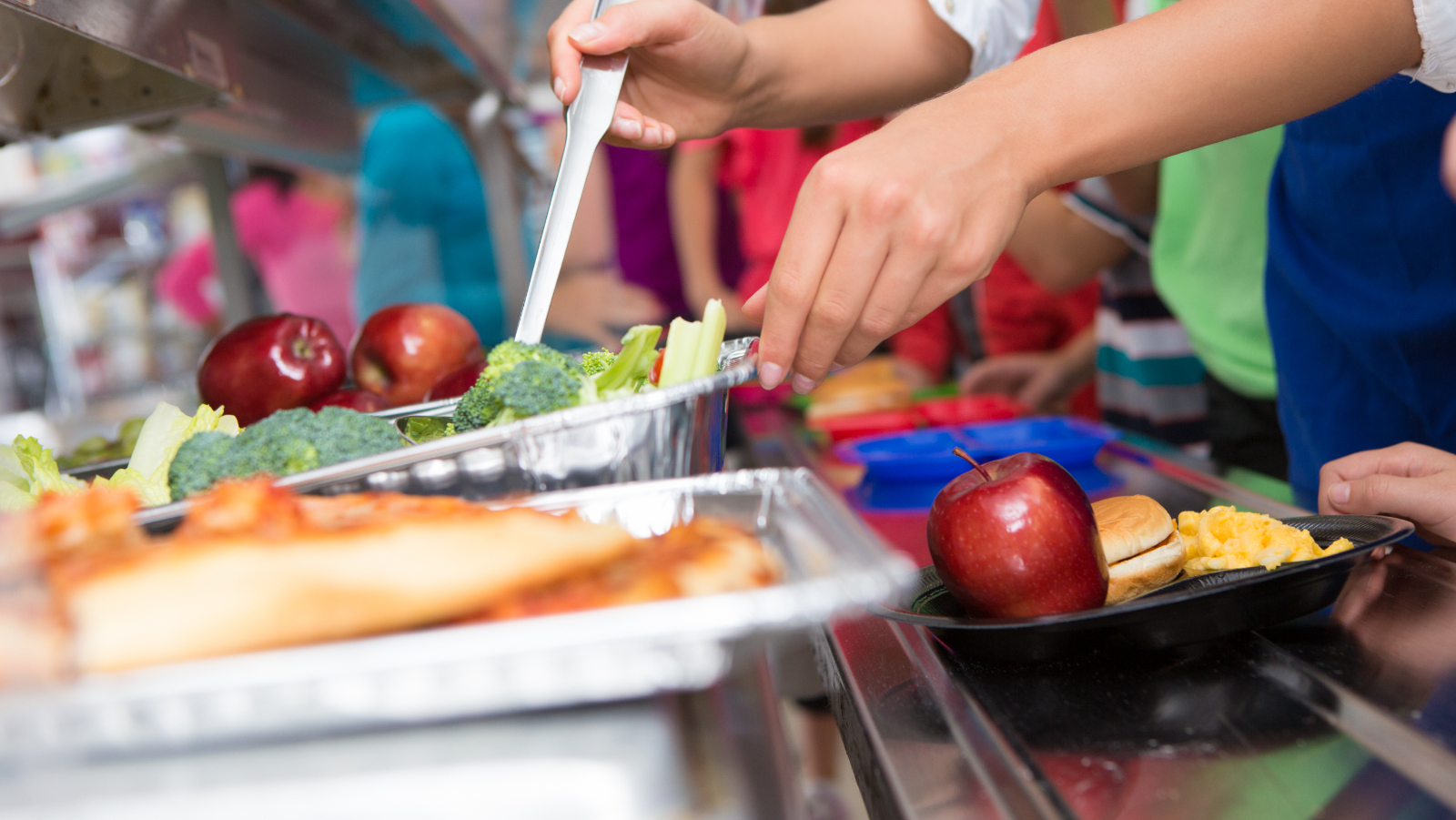 iStock
iStock“Due to Westminster’s mismanagement of our economy, too many households are worrying about debt,” the finance secretary said.
“With our limited powers there is only so much we can do. However, where we can step in, we will.
“That is why I am pleased to confirm we will provide local authorities with £1.5 million to cancel school meal debt, removing a worry hanging over families up and down the country who are struggling to make ends meet.”
Meanwhile, the Scottish Child Payment will rise from £25 a week per child to £26.70.
The Child Poverty Action Group described the rise as “bitterly disappointing”.
Campaigners were hoping to see the sum rise to £30 a week.
The Scottish Government confirmed all the benefits it controls will rise with inflation.
Follow STV News on WhatsApp
Scan the QR code on your mobile device for all the latest news from around the country




